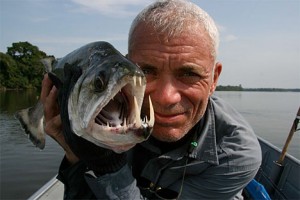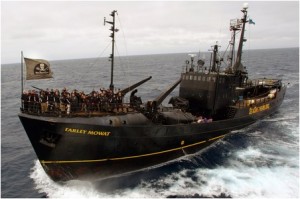
Over Memorial Day weekend, Animal Planet aired a marathon of it’s new hit show “River Monsters”. The show focuses on self-described “biologist and extreme angler” Jeremy Wade’s attempt to find some of the largest freshwater fish on Earth. I’ve heard good things about the show in the past but had never seen it before. After discovering that there were two episodes that dealt with bull sharks, and I immediately DVR-ed them to make sure I didn’t miss anything. I was absolutely shocked at what I heard Jeremy Wade say about sharks:



